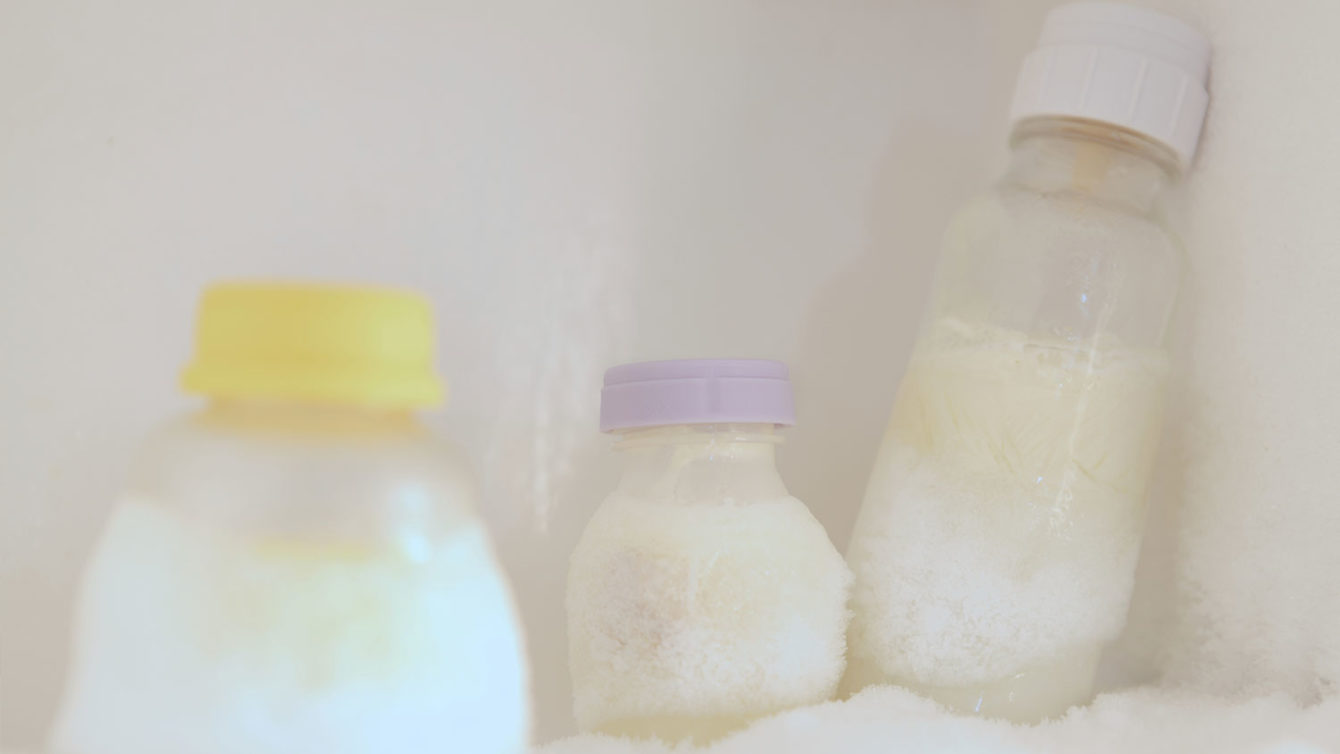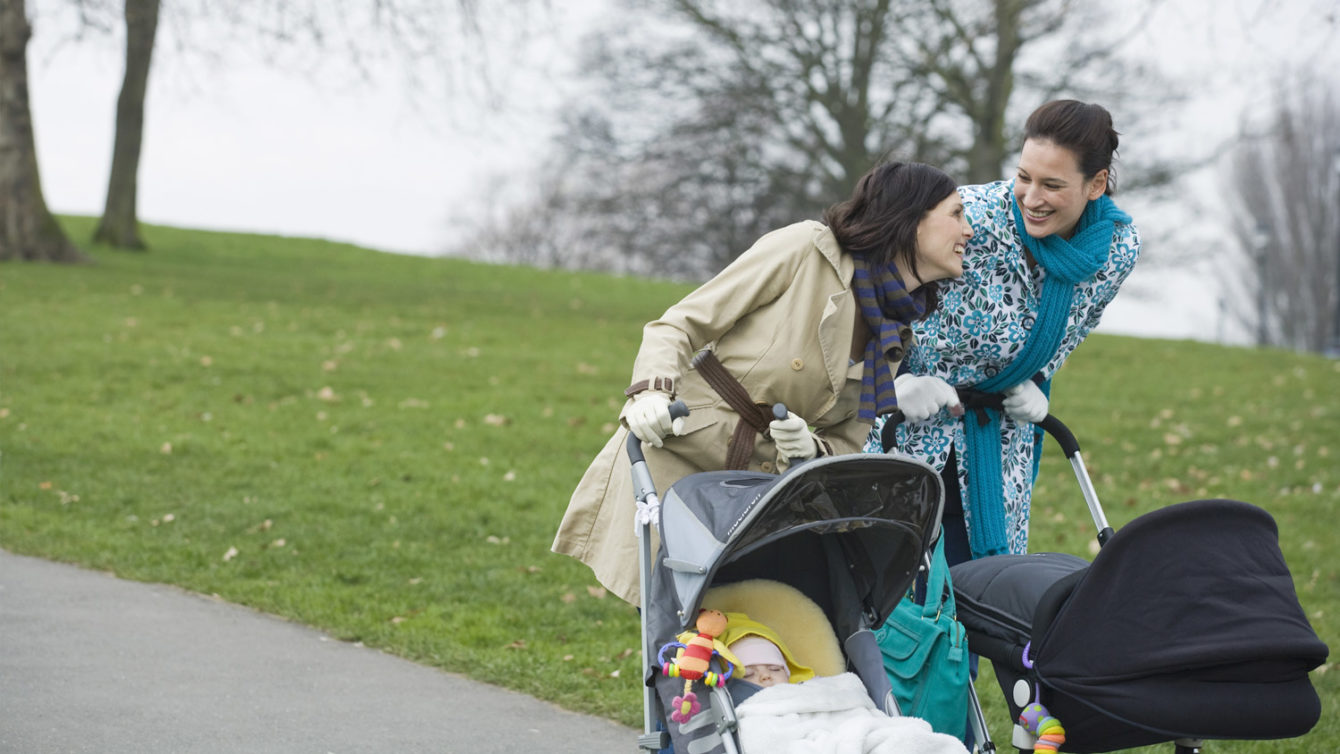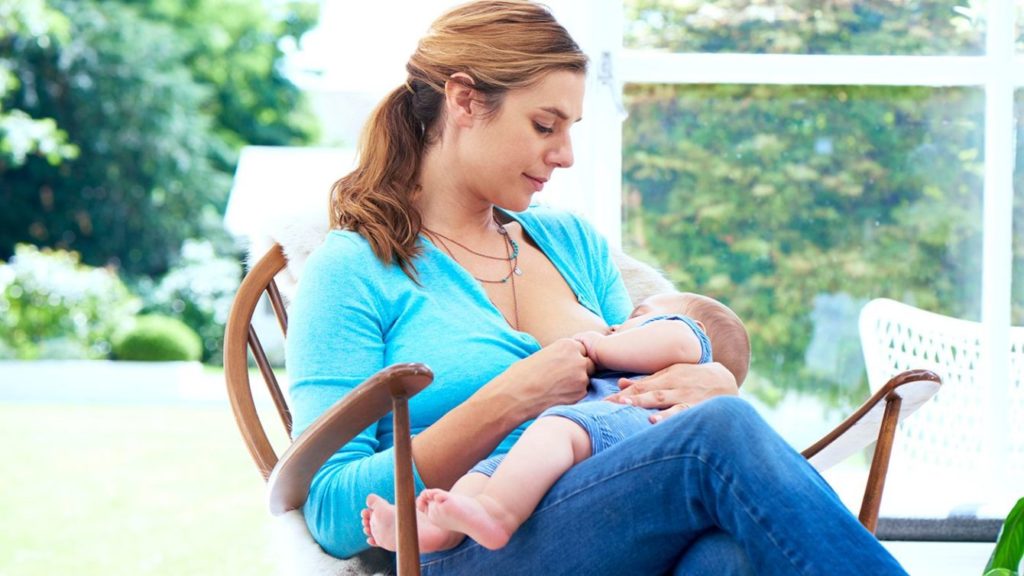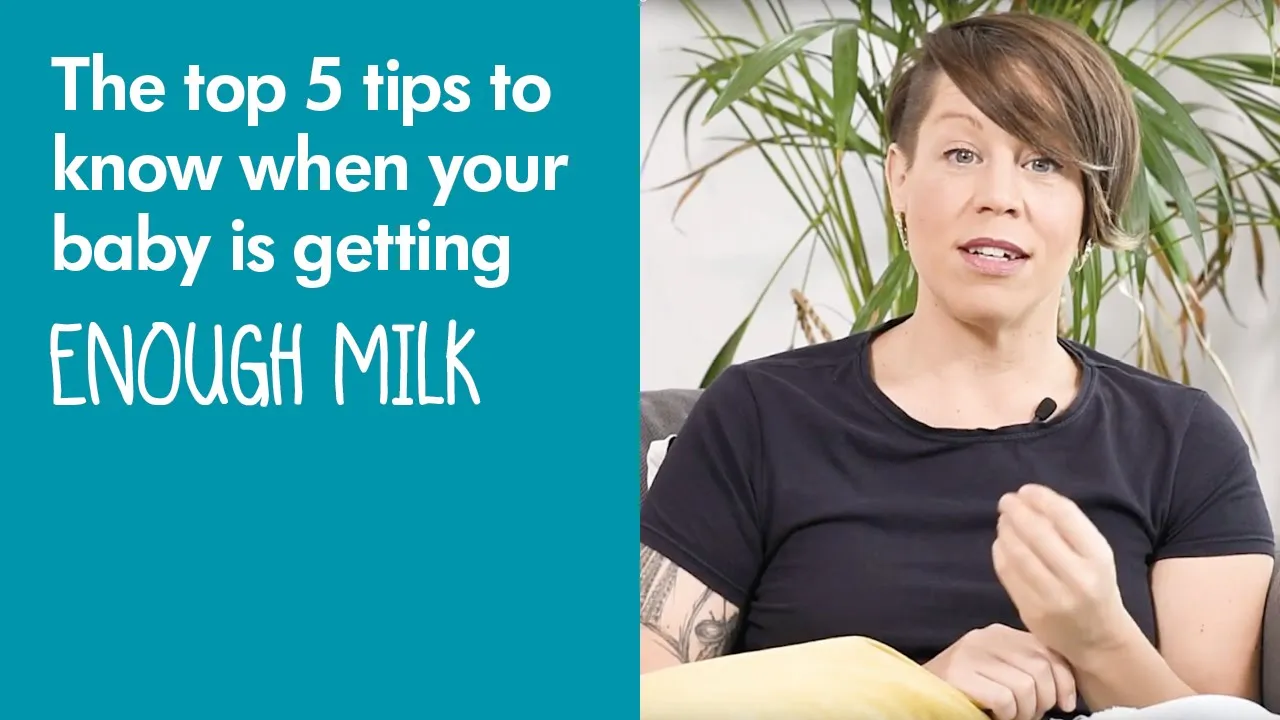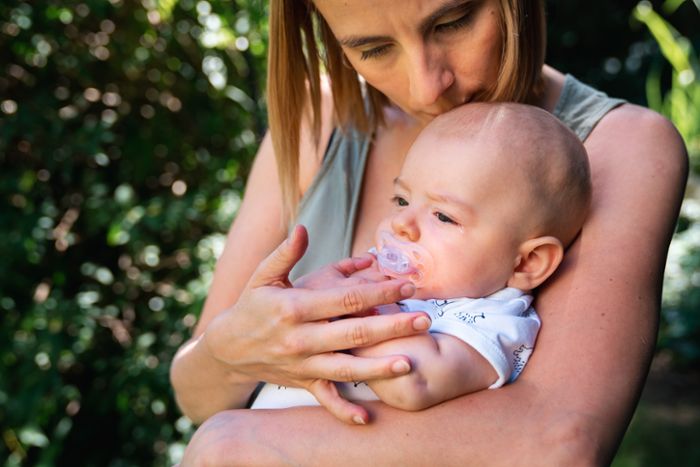If you need to express breast milk regularly, hands-free pumping allows you to get on with other things at the same time. Here’s how to do it quickly, easily and efficiently.

Whether you’re expressing for a premature baby or building up a supply of milk, double pumping is a great way to fit it into your busy life. You can express 18% more milk on average in half as much time as pumping from each breast in turn, and the milk collected has a higher calorie content.1 But because you have to hold two breast shields (the parts of the pump set that you put on your breasts) in place while double pumping, it means you don’t have a free hand to do anything else. This is when a hands-free pumping bra can come in very useful!
The benefits of hands-free expression
Using a hands-free pumping bra means you can collect milk for your baby while you’re on your phone or laptop, reading, having a snack, or playing with an older child. It also makes it much easier to operate the breast pump controls and deal with your bottles or bags of expressed milk.
“A hands-free pumping bra and easy-access clothes save me time and allow me to multitask at work. I book a mums’ room and find I’m able to work and pump at the same time,” says Natalie, mum of one, US.
The Medela Easy Expression bustier has the added benefit of a strap-free design, which means you can pop it on quickly and easily when you need to pump and remove it without fuss when you’ve finished.
“Double pumping using a bustier saved my shoulders from aching and allowed me to get stuff done (or at least eat and have a cup of tea!) while expressing – something I was doing constantly as mum to a premature baby in NICU for six weeks,” says Suzanne, mum of one, UK.
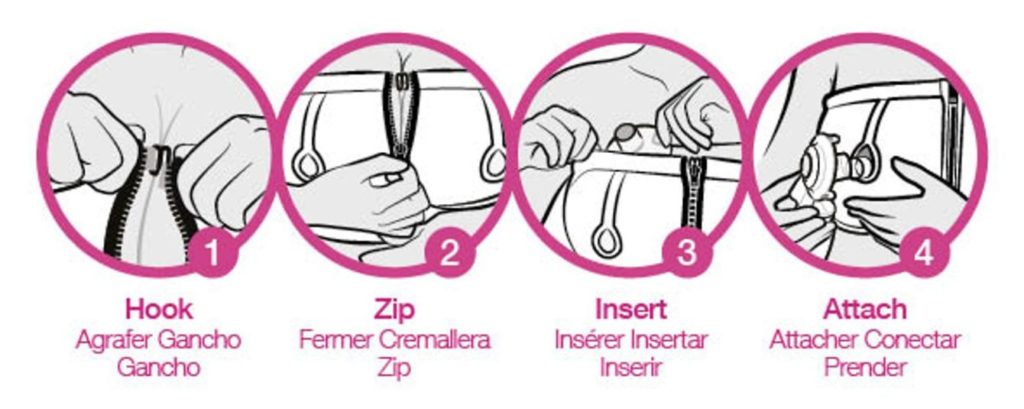
4 simple steps to using a hands-free pumping bra
The Medela Easy Expression Bustier holds the two breast shields of your double breast pump gently in place while you express, and is easy to wear and use – just follow these instructions:
Step 1: Put the Medela Easy Expression Bustier on and fasten the hook at the top – this is designed to make it easier to zip up from the bottom.
Step 2: Zip up the bustier.
Step 3: Insert a breast shield on each breast under the bustier. The bustier material is very stretchy, allowing space for you to do this, but you can also unfasten the zip temporarily if this helps. Your nipple should be centred in the breast shield tunnel, which fits through the hole in each side.
Step 4: Attach a connector to each breast shield, and you’re ready to pump hands-free.
10 top tips for hands-free expression
Like all aspects of breastfeeding, it can take a little time to become proficient at hands-free expressing. Follow these tips to keep yourself comfortable and maximise your milk flow:
- Make sure you have the right size breast shield. The tunnel should be around 4 mm (0.16 in) larger than your nipple’s diameter. If it’s too narrow your nipple may rub against the sides; if it’s too loose too much breast tissue can be pulled inside. The good news is Medela makes breast shields in five different sizes so you can find one that suits you.
- Check that each of your nipples is positioned centrally within each breast shield tunnel before you start pumping.
- Make sure the pumping bra holds both breast shields securely against your breasts without being too tight. If necessary, adjust or loosen it to ensure milk flow isn’t restricted.
- Pump at your maximum comfort vacuum, which is the highest vacuum you can tolerate comfortably, as this has been proven to release more milk in less time.2 To find the right level for you, increase the vacuum gradually until it feels slightly uncomfortable (not painful), then turn it down a notch.
- Avoid leaning on a breast shield or pressing it too hard against the skin, as this could compress your milk ducts and restrict milk flow.3
- Massage your breasts occasionally during pumping to help the milk flow freely from all your ducts.4
- Feel your breasts all over after pumping to check for complete breast drainage – they should be soft.
- Although it’s normal for nipples to appear larger, longer or redder immediately after pumping, they and your breasts should feel comfortable, with no pressure marks or sore spots. Chafing could be a sign that you need a different size of breast shield, or you need to reduce your vacuum. Any indentations on the skin may indicate your pumping bra is too tight or that you’ve been leaning or pressing too hard against the breast shield. Make adjustments next time you express to keep yourself comfortable and avoid problems in the future.
- If you experience ongoing soreness or pain when pumping hands-free, stop using this method and get advice from a lactation consultant or breastfeeding specialist.
- If you’re expressing exclusively and are concerned about any of the above issues, pump once or twice a day without the hands-free option, so you can support your breasts while you pump and ensure they’re well drained.
- Prime DK et al. Simultaneous breast expression in breastfeeding women is more efficacious than sequential breast expression. Breastfeed Med. 2012;7(6):442-447.
- Kent JC et al. Importance of vacuum for breastmilk expression. Breastfeed Med. 2008;3(1):11-19.
- Geddes DT. Inside the lactating breast: the latest anatomy research. J Midwifery Womens Health. 2007;52(6):556-563.
- Morton J et al. Combining hand techniques with electric pumping increases milk production in mothers of preterm infants. J Perinatol. 2009;29(11):757.








